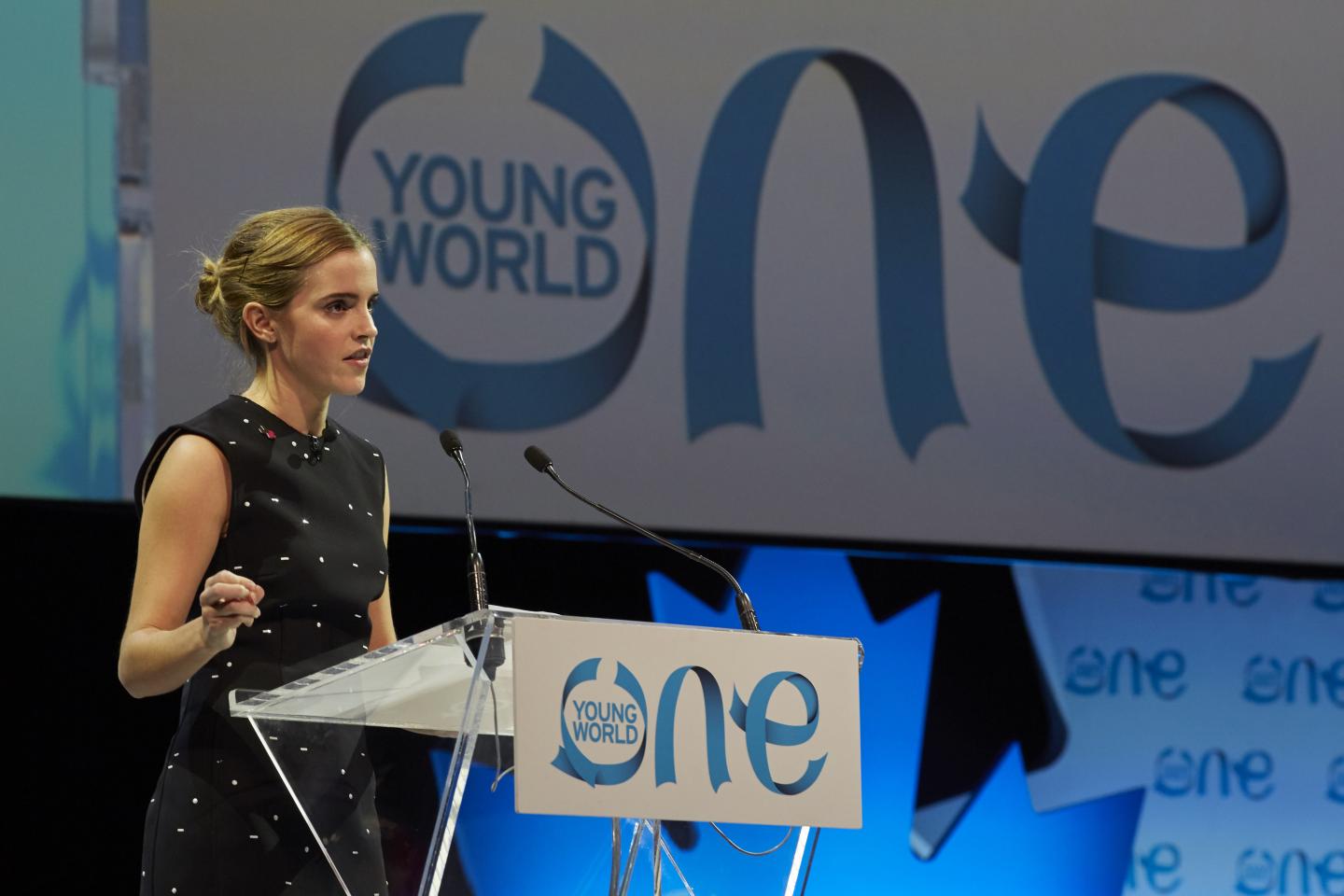A dawn of new political trends are on the horizon as a result of the 2016 election. President Trump’s eccentric performance in office and abroad has created a divide between American political parties. His xenophobic, racist and sexist behavior has had detrimental effects on the unity of this country. Republican and Democratic sides alike are striving to stay true to their agendas in this tense political battleground.
Trump’s outlandish behavior has encouraged many people outside the political sphere and within the celebrity community to act as activists on the Democrat’s behalf. Many people, including Lily Collins, Emmy Rossum and Emma Watson, have used their social media influence as a way to reach out to millennials and encourage them to vote in the upcoming midterm elections.
The outcome of midterms are determined by a number of different factors. According to Cook Political, presidential approval ratings are among the most influential. Analyzing these helps to predict whether or not the current administration will lose seats within the House or Senate, which can be detrimental to the administration’s effort to maintain certain policies, both fiscal and social.
However, according to Cook, it is important to note that the midterm elections are typically not a reflection of the strength of the party out of power, but are instead a reflection on the one in power.
Of course, each party is positioning themselves to gain political influence within the House and Senate, which can happen when one party experiences a disrupting loss in representation. Historical evidence has shown that when presidential approval ratings are above 50 percent, there are fewer losses in the president’s party’s representation in the House and Senate. Recent polls suggest that Trump’s approval rating has teetered on the edge of a mediocre 40 percent.
In his essay, Donald Trump and the 2018 Midterm Elections, Gary C. Jacobson of UC San Diego draws attention to the ever-widening rift between parties, which he attributes to internalized beliefs held by competing parties and a growing distaste for party representatives. According to the most recent Gallup Polls, the difference in Democratic and Republican support for the current administration is at its highest in recorded history, reaching a whopping 78 percent. This divide is supported by differing identities amongst party populations, including in race, sex, class, age and marital status. Of those, age plays an enormous factor in the outcomes of the midterm election and within the changing political atmosphere.
Recent studies have shown that around 59 percent of registered millennial voters identify with the Democratic party. This is notable considering that millennial voters are becoming the largest voting demographic base. However, this still begs the question: Will this group of individuals actually make it to the polls?
Attitudes surrounding voting have discouraged a lot of young Americans. Many believe that their vote doesn’t count or won’t make a difference in light of the current voting process that ultimately is determined by the Electoral College. Despite this, many young individuals, including a number of celebrities, are working to change this mentality.
Since 2016, there has been a steady rise in celebrity endorsement of certain politicians or party agendas. Whether it is direct support and increasing voting for a certain candidate — seen unfortunately with Kanye West’s avid support of Trump — or just a call for policy change, celebrities are using their influence across various social media platforms to strengthen the support of certain parties. Rossum, an actress who has 3.5 million followers on Instagram, has used her profound influence to speak out directly against current social issues, including gun control and women’s rights, which are heavily impacted by Republicans and Trump’s administration.
By the same token, Emily Ratajkowski, an American supermodel who is backed by an impressive 20.5 million followers, has also used her social media presence as an outlet to support women’s rights in light of the Kavanaugh trial. Additional support for young female involvement in politics has been seen by other notable figures including Watson, who has 48.5 million Instagram followers.
It is important to note that while these celebrity figures appeal to a number of different people of varying ages and genders, much of their support lies within the millennial community. Individuals ranging from ages 18-24 have grown up with people such as Watson, with her major part in the enormously popular “Harry Potter” series. Her position, as not only a peer in some sense, but also a role model, has given her voice a certain legitimacy that is very hard to achieve.
In a recent study conducted by Anthony J. Nownes of the London School of Economics US Centre, found that celebrity endorsements have had noticeable effects on voters’ emotions toward certain candidates. Well-respected people within the entertainment industry either showing support for or divorcing from candidates can lower feelings of fear and anxiety toward that person, which can have monumental effects on the outcome of the election.
Young adults within this volatile political climate may find it difficult to align themselves with a certain party or their values. This could be due to a lack of political involvement or education on the topic. Millennials are looking to people who they trust within their own demographic to give them guidance and motivation, particular in voting, while they strive to forge their own party alliance.
The distinction between politics and pop culture has begun to vanish. People formerly outside the political realm have now expressed interest in office and have made purposeful efforts to get involved and push their own agendas — Trump being a prime example. However, celebrities have also begun to realize the sweeping influence and impact they can have on their vast number of avid followers. This comes with a lot of responsibility, but also the incredible opportunity to ignite change.
















